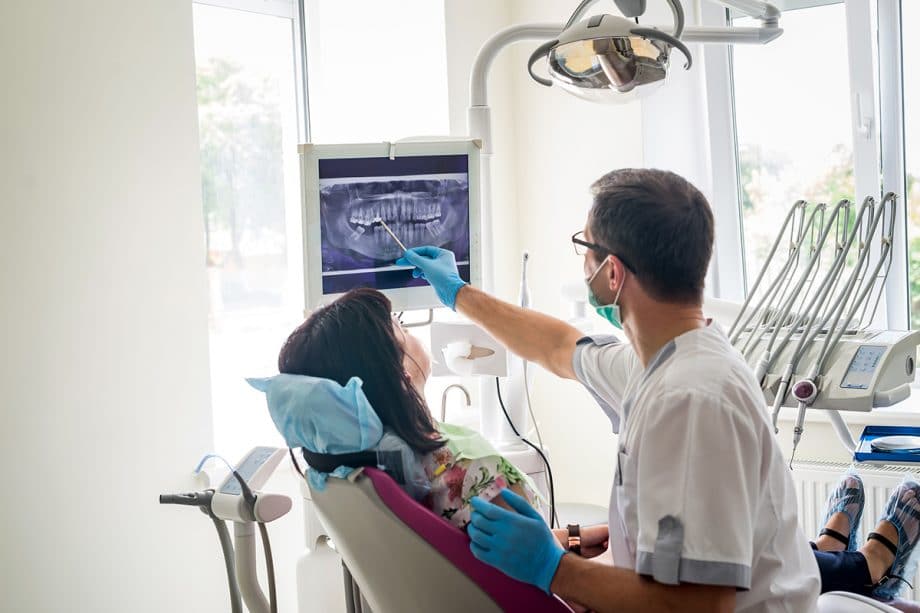Are you suffering from a TMJ disorder? TMJ stands for the temporomandibular joint, which is the official name of the location where your lower jaw attaches to your skull. Like any other joint in your body, you can experience problems with your TMJ, resulting in MPD (Myofascial Pain Dysfunction Syndrome)
MPD is treatable and most patients are able to get complete relief from the symptoms associated with this condition. What are the symptoms of a MPD disorder? Here are the biggest indicators.
Signs and Symptoms of MPD Disorders
If you have a TMJ disorder, you may experience any or a combination of the following symptoms:
- Pain in the jaw. If you have pain where your lower jaw hinges near your ear or temple, you may have TMJ disorder. Inflammation of the joint causes pain in that portion of your jaw. The pain may also extend to the muscles in your cheeks and under your chin.
- Headaches. A common symptom is a constant or recurring headache, especially in the temple area of your head.
- Limited movement of the jaw. TMJ disorder can make it difficult to open your mouth as far as you should be able to without pain or resistance.
- A clicking or popping sound when moving the jaw. You may experience a clicking or popping sound when you open and close your mouth to chew, speak, or yawn. You may also feel the disk shifting inside the joint.
- Ear pain. Because the TMJ is located next to the ear, it is common to feel pain in the ear as well, which is often mistaken for an ear infection.
These are the most common symptoms. But if you are experiencing any other related symptoms, be sure to discuss them with your dentist.
What Causes MPD Disorders?
What happens that causes the TMJ to become inflamed or irritated? 95% of MPD symptoms are muscular in nature. There are a number of possible triggers that contribute to the development of this condition, such as:
- Strain on the joint. If you chew gum a lot or eat particularly hard or chewy foods your muscles may become strained from overuse. Long dental procedures can cause symptoms.
- Stress. Stress can affect the body in many negative ways. Some people hold stress in the form of tension in their jaw, which can result in clenching, resulting in muscle spasms.
- Teeth grinding or clenching. If you grind or clench your teeth, either at night while you’re sleeping or during the waking hours without realizing it, you are putting undue strain on the muscles surrounding the TMJ that can cause spasms.
- Rheumatoid arthritis. Conditions such as rheumatoid arthritis affect the joints in the body, including the TMJ.
- Injury. A blow to the jaw while playing a sport or from an airbag in a car accident can traumatize the TMJ causing inflammation and pain.
Treatment of TMJ Disorder
TMJ will often work itself out with some simple home remedies. You can apply ice to your jaw to reduce the swelling, eat soft foods, and try to rest your jaw as much as possible. You can also take over the counter pain relievers.
If your TMJ is the result of teeth grinding, consider getting a mouthguard to protect your teeth and relieve the strain on your jaw.
If TMJ symptoms persist, contact your dentist and schedule a consultation. In some cases additional therapy may be required to relieve your TMJ disorder. The last resort is surgery, which is only performed if no other treatments have provided relief.
Golia Dental Provides Conservative Therapy for TMJ Disorders
Are you experiencing the symptoms of a TMJ disorder? Golia Dental can provide you with conservative TMJ therapy and treatment options to relieve your pain and increase the range of motion in your jaw.
Call 203-248-7400 or contact us today to schedule a consultation. We look forward to providing you with relief of your TMJ symptoms.

